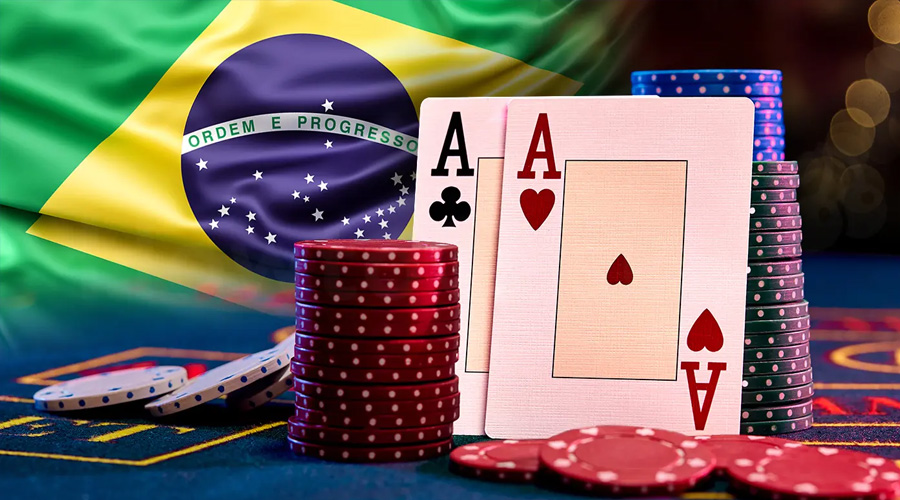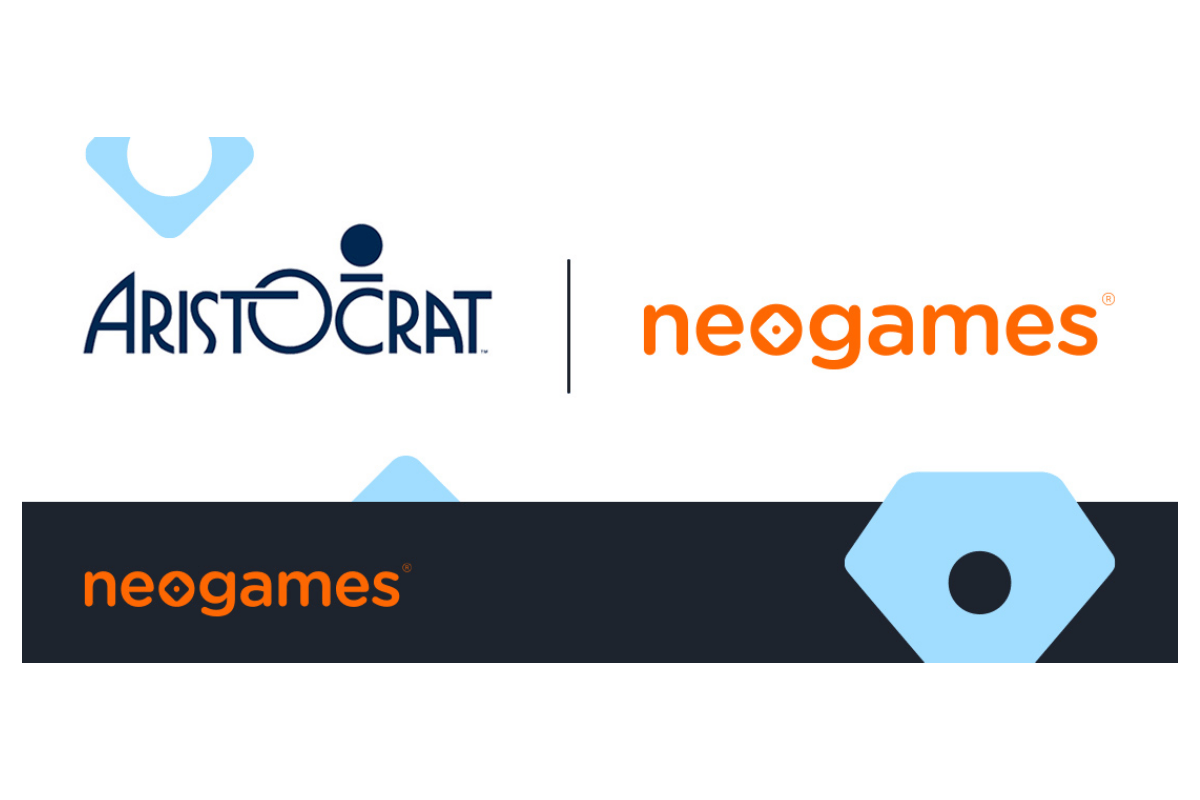Asia
Galaxy Entertainment First Macau Gaming Operator to Accept WeChat Pay
Galaxy Entertainment, one of just six licensed gaming operators in Macau, announced this week that it will soon begin accepting WeChat Pay mobile transactions at its three major properties, Galaxy Macau, StarWorld Macau, and Broadway Macau.
WeChat Pay allows mobile users to leave their physical wallets at home, and now visitors to Galaxy Entertainment resorts in Macau will be given that freedom, so long as they don’t plan on gambling.
WeChat is a popular social media platform in China that has almost a billion monthly active users. Its Pay digital wallet component allows users to link the app to their bank account in order to pay bills, order goods and services, transfer money, and pay in stores by scanning merchant QR codes.
In addition to the yuan, WeChat Pay supports numerous currencies including the Hong Kong dollar, US dollar, Great Britain pound, and euro. Exchange rates are calculated through one of the Chinese government’s commercially owned banks.
In a statement, Galaxy Entertainment said the inclusion of WeChat Pay “answers the needs of mainland Chinese visitors … who overwhelmingly prefer to pay with e-wallets.”
What the company didn’t reveal, however, is whether casino patrons will be able to purchase gaming chips and spin the slot machines through their mobile devices. That might hint that the service won’t be immediately available on the gambling floors. Galaxy only confirmed that WeChat will be accepted “at a wide range of establishments” including hotels, food and beverage establishments, retail shops, and entertainment venues.
Galaxy Entertainmentwas founded in 1988 by Hong Kong billionaire Lui Che Woo. In addition to the three casino resorts, Galaxy also controls three CityClub casinos in Macau.
WeChat Controversy
Galaxy Entertainment welcoming WeChat use into its resorts might come as a surprise considering the recent gambling scandals involving the social platform.
Just last week, Macau’s Judiciary Police arrested seven men for operating an illegal gambling operation that offered baccarat to remote players and took bets via WeChat Pay.
Even more startling was last April’s sting that uncovered a betting ring that used WeChat to livestream video footage of an actual baccarat table inside a Macau casino. Bettors were given 70 seconds to place their bets, and online facilitators collected or paid out on the wagers after the results of each round were displayed. The allure was apparently that there were no betting limits.
Macau police also announced this week that a loansharking operation that facilitated money for gamblers through WeChat Pay had been disrupted.
Asian Appeal
The Asian gambler is a coveted demographic, as they often have a strong belief in luck, fortune, and fate. An anonymous Chinese gambler once said, “If you don’t gamble, you don’t know how lucky you are.” The same, of course, can be said about how unlucky one might be.
Regardless, a substantial portion of Asians enjoy gambling. Behind only the United States, China loses the most money gambling each year of any country.
That’s why over 7,000 miles away in Las Vegas, Caesars recently incorporated WeChat Pay at Caesars Palace, Paris Las Vegas, and LINQ Hotel & Casino. “We want to do this for our Chinese customers to make them feel at home,” Caesars VP of International Marketing Bruce Bommarito said last summer.
WeChat Pay users at the three resorts can purchase food through the app, as well as concert tickets and retail items. However, gambling through the app isn’t available.

Asia
Understanding Japan’s Obsession with Pachinko Parlours

Pachinko is one of Japan’s favourite pastimes. Its popularity has grown exponentially since its emergence as a children’s game in the 1920s. The game soon gained popularity among adults and became a total phenomenon as the 20th century progressed.
The game plays a significant role in Japan’s economy. Extraordinarily, it now contributes around 4% to Japan’s GDP! In the late 1990s it was even higher, reaching a peak of 5.6% in 1999. This makes the Pachinko industry twice as profitable as the automobile export industry. It also employs more people than the entire automobile industry. Pachinko now produces more revenue than the gambling capitals of Macau, Singapore and Las Vegas combined. Profits from the industry amount to around 30 trillion yen each year. And when we say “industry” this doesn’t necessarily mean Japan’s casinos, but there is definitely an element of gambling involved as we’ll explain in more detail later.
Japanese cities are now dotted with Pachinko halls. There are different types to attract different kinds of clientele, as Pachinko’s popularity in Japan is consistent across all demographics. Initially more popular among men, more and more women have become enthusiastic players since the 1980s.
The game is often described in the West as “vertical pinball.” While this isn’t entirely accurate, the game does share some similarities with pinball, as well as with more standard slot machines. The game involves small steel balls which are shot into a vertical playing range and run around a track. Players use a lever on the side of the machine to play. The objective is to land as many of the balls as possible into small cups at the bottom of the range. While the machines used to be much more mechanical, they are now increasingly electronic.
Players also try to match symbols, as with a standard slot machine. When they match three of the same symbols, many small steel balls exit the machine into a plastic box, which can then be exchanged for tokens. When a player wins, the machine’s lights flash and the song changes.
While pachinko is essentially a game of chance, some “pachinko pros” identify patterns to exploit the machines more effectively. For example, newer machines are programmed to give out more wins to encourage players to return. Some also believe that there are better times of day to play particular machines. It’s not uncommon for players to win significant sums of money, in some cases as much as 200,000 yen in a day. However, a player can also lose up to 10,000 yet in as little as forty minutes of playing time without a win.
Other legal gambling industries in Japan, such as horse, bicycle and boat racing, are operated by the government. Pachinko, however, operates through a legal loophole and is “government tolerated.” Rather than playing directly for money, players play for small metal balls which can be exchanged for tokens. These tokens can then be exchanged for a range of prizes, including cash, at a different location. These locations are usually in different buildings that are very near the pachinko parlour.
Pachinko machines also usually take prepaid cards rather than cash. Despite the enormous popularity of pachinko, its nuanced legal status makes it a somewhat marginalised industry. It is not always seen as a “respectable” line of work among the Japanese middle classes and many of the parlours are operated by Korean immigrants.
Pachinko is often seen as a stress-relief activity for Japan’s salarymen or women with many responsibilities in the home. The style of parlour varies depending on the kind of players it is intended for. However, there are issues around addiction and compulsive gambling. In 1999, 29% of pachinko players reported that they felt they had an addiction to the game. There are other social problems associated with the game, such as neglect of the children of compulsive players.
The Japanese authorities have worked hard to address these issues since the 1990s. Some pachinko parlours now also offer small prizes and minimal expenditure from players in order to move the focus off the gambling aspect and onto the game itself. Advertisements for responsible playing are also visible throughout most parlours and in society more broadly.
Pachinko’s popularity may also be beginning to decline. There are almost a third fewer parlours than there were in 2005, and many that were already struggling have been forced to close due to the Covid-19 pandemic. Younger players also often prefer video games to pachinko.
Still, pachinko remains a cultural phenomenon and an intrinsic part of Japanese life. It can be fascinating to witness such a culturally specific pastime in action. Some pachinko parlours mainly cater to serious players. However, there are plenty of others where the staff will be delighted to introduce you to the game.
Asia
Slotegrator’s overview of gambling in Uzbekistan

Online casino and sportsbook provider Slotegrator is one of the leading aggregators in the Eastern European and CIS gambling markets — and rightfully so: the company keeps a close eye on the evolution of iGaming in each country and provides you all the latest information. Slotegrator’s new article shines the spotlight on the gambling landscape of Uzbekistan.
In November 2019, the government of Uzbekistan published a decree on sports activities that also revealed officials’ intention to legalize the sports betting sector of the gambling industry, which was banned in 1991 (with one exception — state lotteries).
The potential legalization of sportsbook businesses looked like a serious and meaningful step forward on the government’s part, and was supposed to open some new doors to the highly promising market for sponsors and investors. It was also seen as a natural stimulus to help Uzbekistan’s sports industry — particularly football — make a giant leap forward.
In addition to the initiative to develop sports betting, there is a project to create a special gambling zone in the city of Muynak. The logic behind the idea is to popularize Uzbekistan as a tourism destination and attract more international investments into the country’s economy. Meanwhile, the planned construction of an entertainment area should include a sports track as well as a shopping mall.
The year 2020 has been set to carry out all the necessary campaigns to lay the groundwork for taking the next steps and eliminating any possible legal contradictions and loopholes.
Read Slotegrator’s new article on Uzbekistan’s gambling initiatives to find out more about the current status of the project.
Asia
Pave the way to gambling success in India by launching an online casino business powered by Slotegrator

While businesses everywhere are barely keeping their heads above water in a turbulent global economy, India offers a safe haven. When it comes to iGaming, the Indian horizon looks crystal clear and cloudless. This is one of many reasons why online casino operators are setting a course for India, which offers a more promising financial and legislative climate than many other jurisdictions.
India has been seen as a land of promise and opportunity throughout human history, with countless business endeavors made to the country in hopes of tapping into its riches — and the iGaming industry is no different. Online casino and sportsbook software supplier Slotegrator made its own trip to the Indian market to ensure it offers the online gambling community firm — and profitable — ground to stand on. The evidence that the game is worth the candle? India has a population of over 1.3 billion, constantly increasing access to mobile technology, and a gambling industry already estimated to be worth $60 billion USD per year. Need we say more?
Slotegrator has carried out thorough research on India’s iGaming prospects, the result of which is another vivid illustration of the current opportunities: India is now home to nearly 700 million smartphone users, with over 127 million new users coming online since 2019. With that in mind, iGaming operators may be asking themselves what steps they should take to launch an online casino project. They can find the answer in “A guide to starting an online casino in India” by Slotegrator.
The article leaves no stone unturned, shining a spotlight on all the crucial aspects of the serpentine process of opening an online gambling project. By getting in-depth information and studying up on necessary tricks under Slotegrator’s wing, operators can perfectly gear themselves up for iGaming success. With a focus on an in-depth market overview, Slotegrator leads readers through the journey to establishing a flourishing iGaming business, pinpointing all the market’s intricacies along the way.
In India, like in any other jurisdiction, operators should be well-educated with respect to gambling laws, which vary from state to state. While the regulatory framework in the country is complicated, ignorance will not be seen as an excuse, so operators should take careful note of online gambling regulations in order to find firm legal footing on Indian soil.
To run a successful iGaming business, operators have to lay the groundwork for the future of their projects, and Slotegrator’s guide to starting an online casino in India is definitely a helping hand for ambitious business owners with their eye on the booming market.
-

 Latest News2 months ago
Latest News2 months agoFairplay Exchange signs as new sponsor of Stephen Hendry’s Cue Tips
-

 Latest News2 months ago
Latest News2 months ago2 PEOPLE CAUGHT OPERATING ILLEGAL ONLINE GAMING SITE
-

 Latest News3 months ago
Latest News3 months agoWazdan partners with 711.nl for significant expansion in the Netherlands
-

 Latest News3 months ago
Latest News3 months agoPlaytech Extends Partnership with BoyleSports Until 2028
-

 Latest News3 months ago
Latest News3 months agoOneCasino Partners with Delasport to Also Conquer Sports Betting in the Netherlands
-

 Latest News2 months ago
Latest News2 months agoStarGames Named Premium Partner of the International ADAC Truck Grand Prix 2024
-
Latest News2 months ago
Casino Crypto Giant Bitline Partners with Ciphertrace for Enhanced Compliance in Digital Asset Transactions
-

 Latest News2 months ago
Latest News2 months agoSenet Platform Partners with Beamable



























You must be logged in to post a comment Login